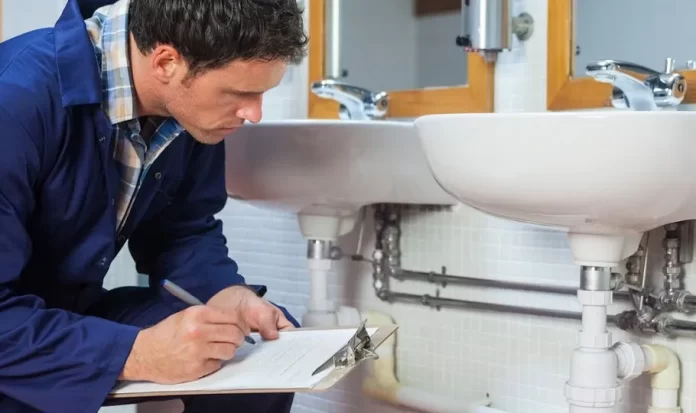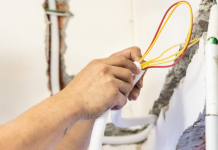While crucial for the smooth running of our homes and businesses, the plumbing profession can often be cloaked in misconception. Many perceive it as a simple affair of tightening a bolt here or there, but the reality is far more complex and challenging.
Plumbing is an intricate dance of pressure, flow, and precision, all performed within the tight confines of walls or beneath the unforgiving surface of the ground. The tiniest misstep can result in the cascading cataclysm of leaks, blockages, or worse.
In this article, we’ll delve into the most challenging aspects of plumbing, shedding light on the hidden intricacies and the demanding nature of this underappreciated craft. After reading today’s post, check out the following link to Full Speed Plumbing for your plumbing needs: https://www.fullspeedplumbing.com/.
Table of Contents
Four tough aspects of the plumbing trade
Among the many challenges that impact the plumbing profession, four stand out as particularly formidable. These aspects underscore the complexity of the trade and the rigor required to navigate them effectively.
Physical requirements
Plumbers work in tight spaces with pipes that often need to be bent and reached for, so flexibility and the ability to bend and reach are essential skills for them.
Strength is also required; keeping tools steady for extended periods and tightening clasps and fittings requires physical strength as well.
Finally, good vision allows plumbers to work in dimly lit areas and clearly see small plumbing parts and tools.
Plumbing can be physically taxing as it often involves standing, walking, and repetitive motions like bending and kneeling, which may cause back problems or health concerns as well as being stressful due to the unpredictability of the issues encountered along the way.
Working conditions
People often associate plumbers with clogged toilets or the dangers associated with raw sewage, but plumbing encompasses much more than that. Plumbers build systems to separate waste from clean water for people’s safety and prevent disease; plumbers design, install, and maintain these critical systems.
Working conditions for plumbers can be demanding. Their jobs often involve working in cramped quarters and lifting heavy pipes or equipment – this may cause back strain and other physical complications over time. Plus, exposure to chemicals, dirt and other potentially toxic materials could harm their bodies further.
Communication skills and problem-solving
Plumbers need to communicate effectively with customers in order to explain their problems and the solutions available to fix them. This aspect of their jobs can be challenging for people who struggle with communicating.
Plumbers must also be adept at quickly solving problems on the job, which can be particularly challenging when faced with major issues like broken pipes or blocked sewage lines. Without fast problem-solving skills and solutions on hand, they could end up losing money on the project.
Safety
Safety plays an integral role in the life of a plumber. Every day, they are faced with risks from handling heavy equipment, operating power tools, and exposure to hazardous materials. Therefore, understanding safety protocols and maintaining a consistent commitment to these is imperative. We’ve outlined the most significant safety concerns below.
- Handling heavy equipment and power tools: Plumbers regularly use heavy equipment and power tools. Mishandling can lead to severe injuries. For instance, a pipe can burst due to improper handling, causing water pressure-related injuries.
- Exposure to hazardous materials: Plumbers often come into contact with potentially harmful substances, such as lead in old pipes or toxic fumes from solvents. As a safety measure, they must use personal protective equipment (PPE) like gloves, goggles, and respirators.
- Risk of electric shock: Working near water can expose plumbers to the risk of electric shock. They must be knowledgeable about grounding and insulation techniques to prevent such incidents.
- Physical strain: The job often requires working in cramped and uncomfortable positions, increasing the risk of musculoskeletal injuries. Regular breaks and proper training in handling heavy materials can help prevent strain.
- Importance of safety protocols: The profession is fraught with potential dangers. Following safety measures is not just important but a matter of professional survival. Adherence to safety protocols, including the use of personal protective equipment and proper handling techniques, is paramount to ensure the safety of plumbers.
Conclusion
To conclude – plumbing is an intensive profession requiring physical strength, versatility, excellent communication skills and a deep knowledge of safety protocols. Plumbers play an invaluable role in safeguarding our communities’ health and well-being despite working under difficult conditions with heightened risks on a daily basis.
As with any profession, there are challenges, but the reward lies in supplying an essential service that keeps our homes and businesses functioning smoothly. If one is considering a career in this field, understanding these challenges and requirements is key to making an informed decision.
















